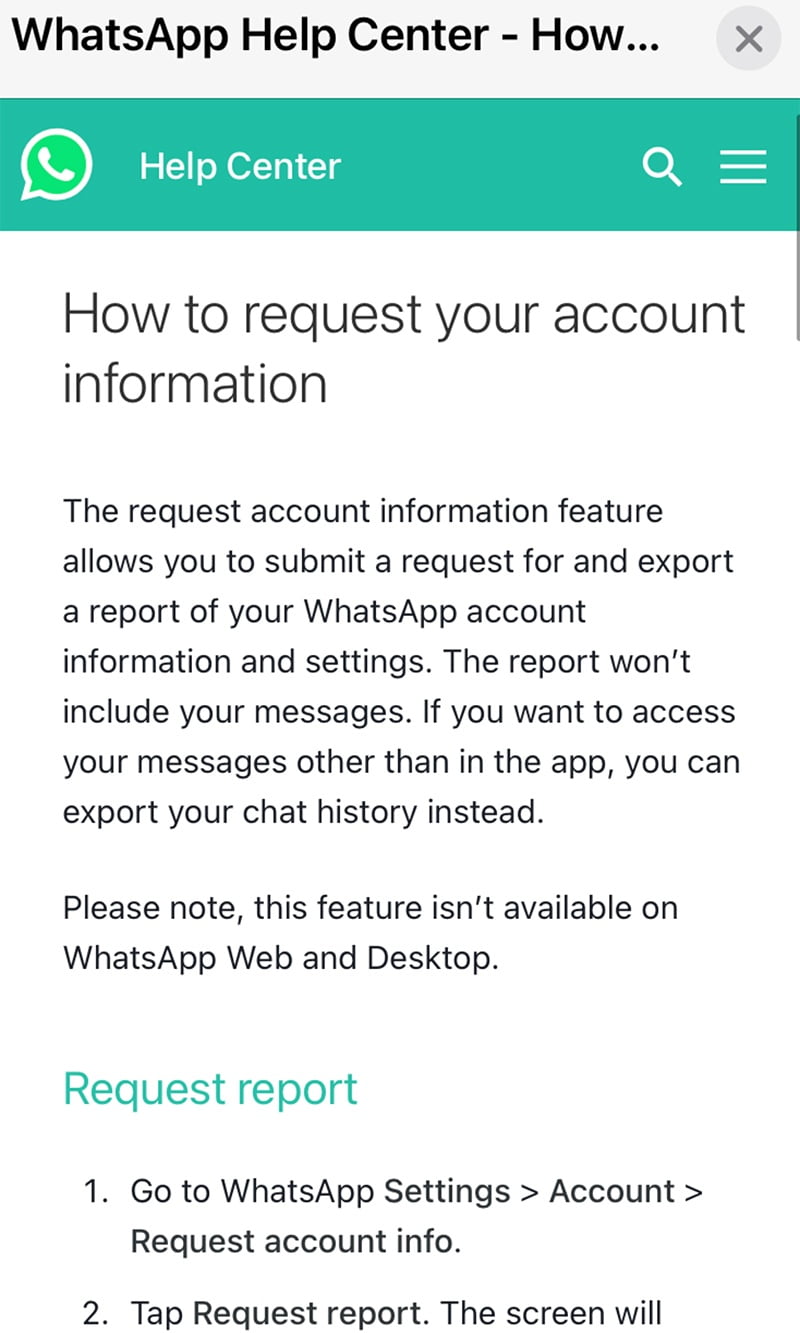May 11, 2021
Article in English only
In early January 2021, WhatsApp users worldwide received a notice about updates to the platform’s terms and privacy policy. By accepting these terms, users agreed to the new policies effective from May 15, 2021.
This update primarily revolved around mandatory data sharing with Facebook, regardless of whether a user had a Facebook account. The change aimed to enhance targeted advertising on Facebook by using WhatsApp account data.
Previously, WhatsApp’s privacy policy allowed users to opt out of sharing their data with Facebook. However, the updated version removed this option, making data sharing compulsory.
With privacy concerns rising, many users started seeking alternative messaging apps such as Telegram, Signal, and Threema, known for their stronger privacy policies and minimal or no data sharing with third parties.
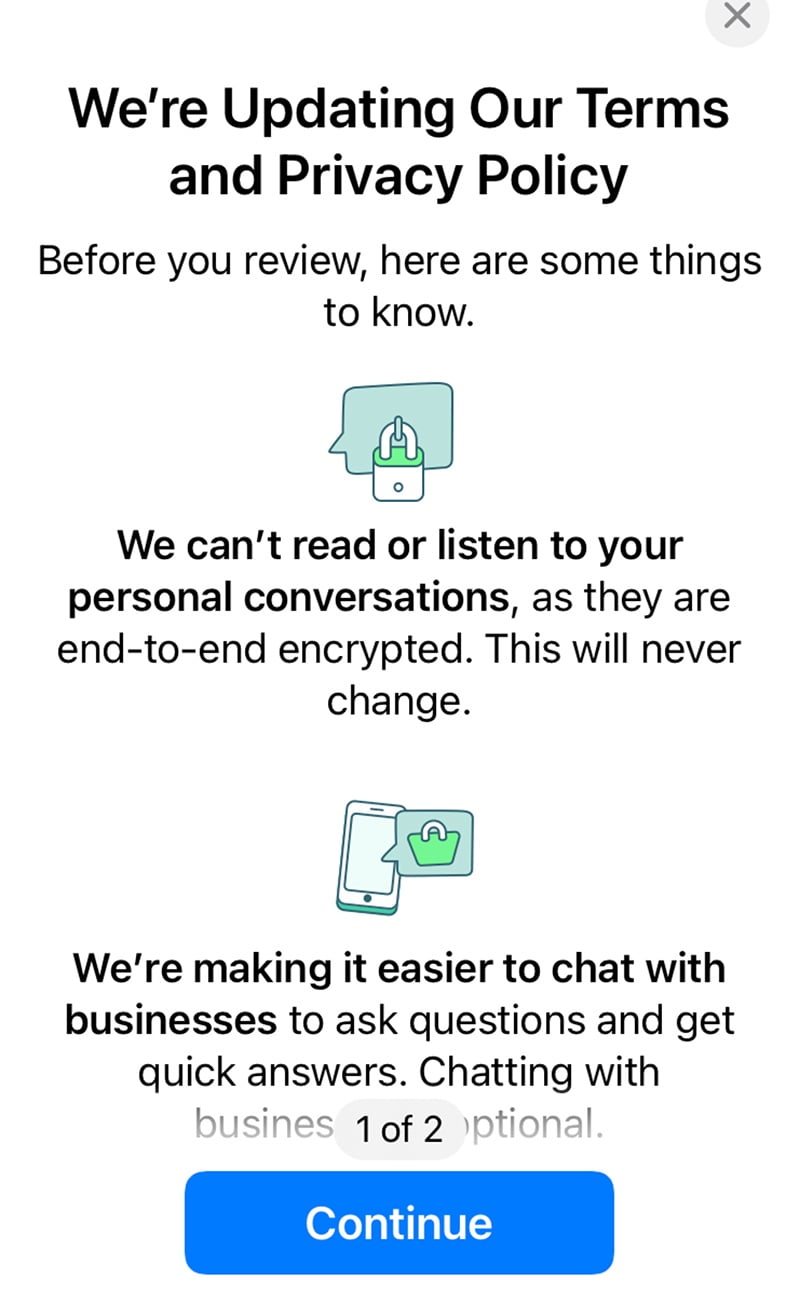
What’s New in WhatsApp’s Privacy Policy Update
For the record, WhatsApp has already been sharing certain user data with Facebook, but until now, this was optional. According to WhatsApp’s FAQs, the data shared includes:
• Account registration information (e.g., phone number)
• Transaction data
• Service-related information
• How users interact with others, including businesses
• Device information (e.g., mobile details, IP address)
• Other data specified in the “Information We Collect” section of the Privacy Policy
The key difference with this update is that data sharing with Facebook is now mandatory. Users who do not accept the new terms will lose access to WhatsApp, and their accounts will be automatically deleted after 120 days of inactivity.
Why Is WhatsApp Making This Change?
WhatsApp explains this shift in its updated Terms of Service, particularly in the new “Affiliated Companies” section. It states that WhatsApp receives and shares data with Facebook Companies to enable integrations that connect WhatsApp with other Facebook-owned services.
This move reinforces WhatsApp’s deeper integration with the Facebook ecosystem, affecting how user data is handled across platforms.
The Bigger Picture
Despite concerns over privacy, WhatsApp remains the dominant player in instant messaging, making a mass exodus of users unlikely. For example, on New Year’s Eve, the platform handled over 1.4 billion voice and video calls worldwide—the highest ever recorded in a single day and a 50% increase from the previous year. Given its 2 billion+ users, it is improbable that a large portion would abandon the service entirely, as it remains a primary means of communication for friends, families, and businesses.
For WhatsApp, this policy change represents a twofold profit strategy:
- Ultra-Targeted Advertising on Facebook – By leveraging WhatsApp data, Facebook can serve highly personalised ads.
- Transaction Fees on WhatsApp Payments – WhatsApp plans to take a percentage of every transaction made through its platform, similar to credit card processing fees.
This move reinforces Facebook’s broader monetisation strategy, using WhatsApp not just as a messaging tool but as an integrated part of its business ecosystem.
> Check out Telegram & Signal viable alternatives to WhatsApp by Cnet.
One of WhatsApp’s biggest strengths is its massive network effect, which virtually locks in user loyalty. Unlike smaller competitors, WhatsApp benefits from a self-reinforcing cycle: the more people use it, the more essential it becomes.
Even if a competing messaging app offers better features or stronger privacy protections, it loses its value if few contacts are on it. A messaging app is only as useful as the number of people actively using it. This is why, despite privacy concerns and policy changes, most users stick with WhatsApp it remains the primary way to connect with friends, family, and businesses.
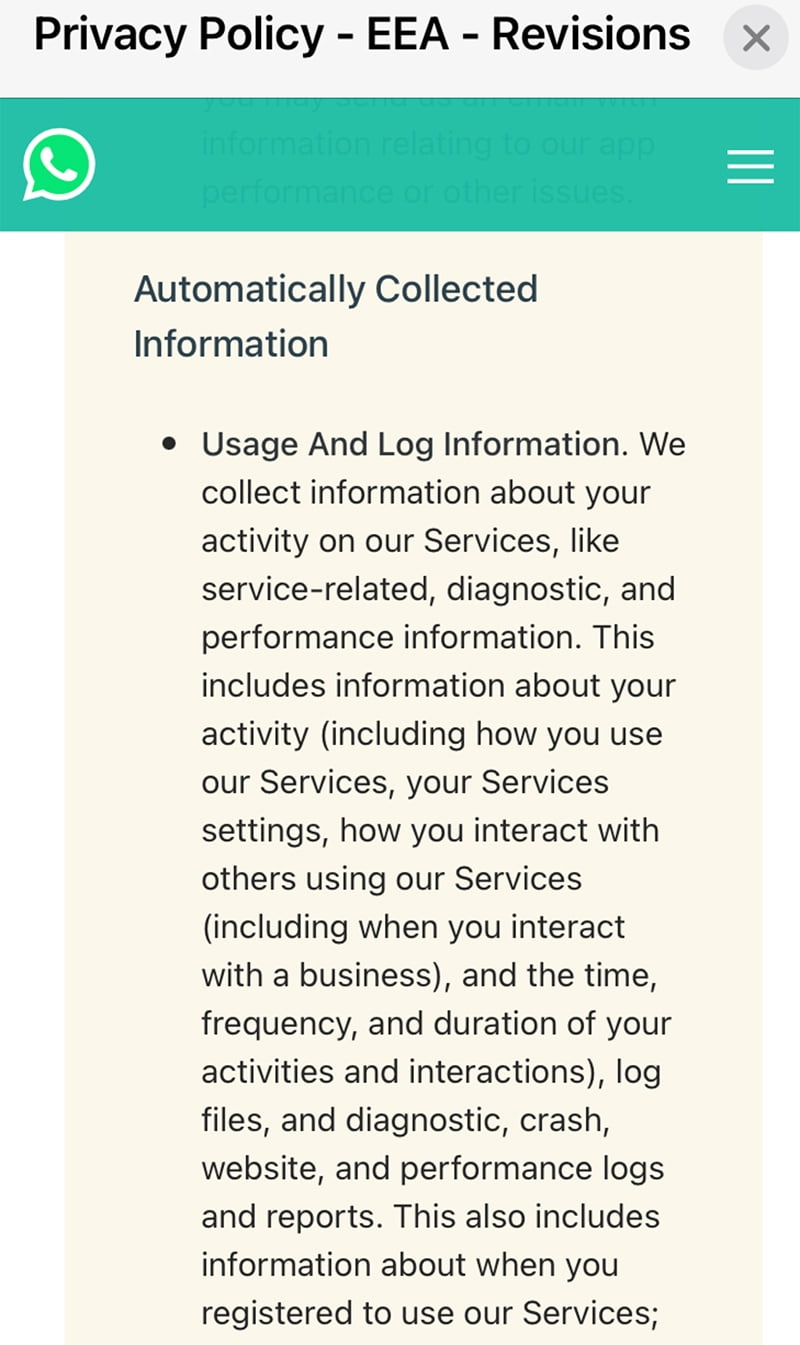
WhatsApp remains the dominant messaging app with over two billion users worldwide. Its widespread adoption ensures seamless communication with friends, family, and businesses. The app offers an easy-to-use interface, voice and video calls, group chats, and business features. It also implements end-to-end encryption for personal chats through Signal’s encryption protocol. However, privacy concerns have grown due to mandatory data sharing with Facebook, collection of metadata, and the likelihood of future monetization through ads and transactions.
Telegram, launched in 2013 by the Durov brothers, stands out as a strong competitor. Unlike WhatsApp, it operates on a cloud-based system, allowing users to access chats across multiple devices. It offers two types of chats: standard, which are encrypted using client-server encryption, and secret chats, which provide end-to-end encryption and self-destructing messages for enhanced privacy. Telegram does not require a phone number to be visible, making it more privacy-friendly. However, by default, standard chats are not end-to-end encrypted, raising security concerns.
Signal is widely recognized for its strong commitment to privacy and security. Developed by a non-profit foundation, it offers full end-to-end encryption by default, ensuring that no third party, not even Signal itself, can access user conversations. Unlike WhatsApp and Telegram, Signal minimizes metadata collection, making it the preferred choice for privacy advocates such as Edward Snowden and Elon Musk. The European Commission has also endorsed it for secure communication. However, Signal’s smaller user base means fewer contacts to chat with compared to more popular messaging apps.
Threema, a Swiss-based messaging service, provides one of the most secure and privacy-focused alternatives. Unlike other apps, it does not require a phone number or email to register, allowing for full anonymity. It complies with strict European data protection regulations and is open-source, ensuring transparency in its security measures. Used by the Swiss Army, it is considered highly secure but remains less popular due to its paid model, requiring a one-time purchase fee. Its smaller user base also makes it less accessible for widespread communication.
On Saturday, 15 May, WhatsApp’s new terms and conditions of use officially came into effect after months of controversy and debate. Since January, users worldwide have been prompted to approve the updated policy, which focuses on mandatory data sharing with Facebook. While the news initially sparked widespread concern, the impact in Europe has been mitigated by the GDPR, the European Regulation for the Protection of Personal Data, ensuring that EU users face minimal changes in data handling.
Despite initial reassurances, a recent update on WhatsApp’s official FAQ page reignited discussions. The company clarified that users who do not accept the new terms may find their access to the app restricted. Over time, this could render WhatsApp completely unusable, as accounts that remain inactive for 120 days due to non-acceptance of the new policy risk being automatically deleted.
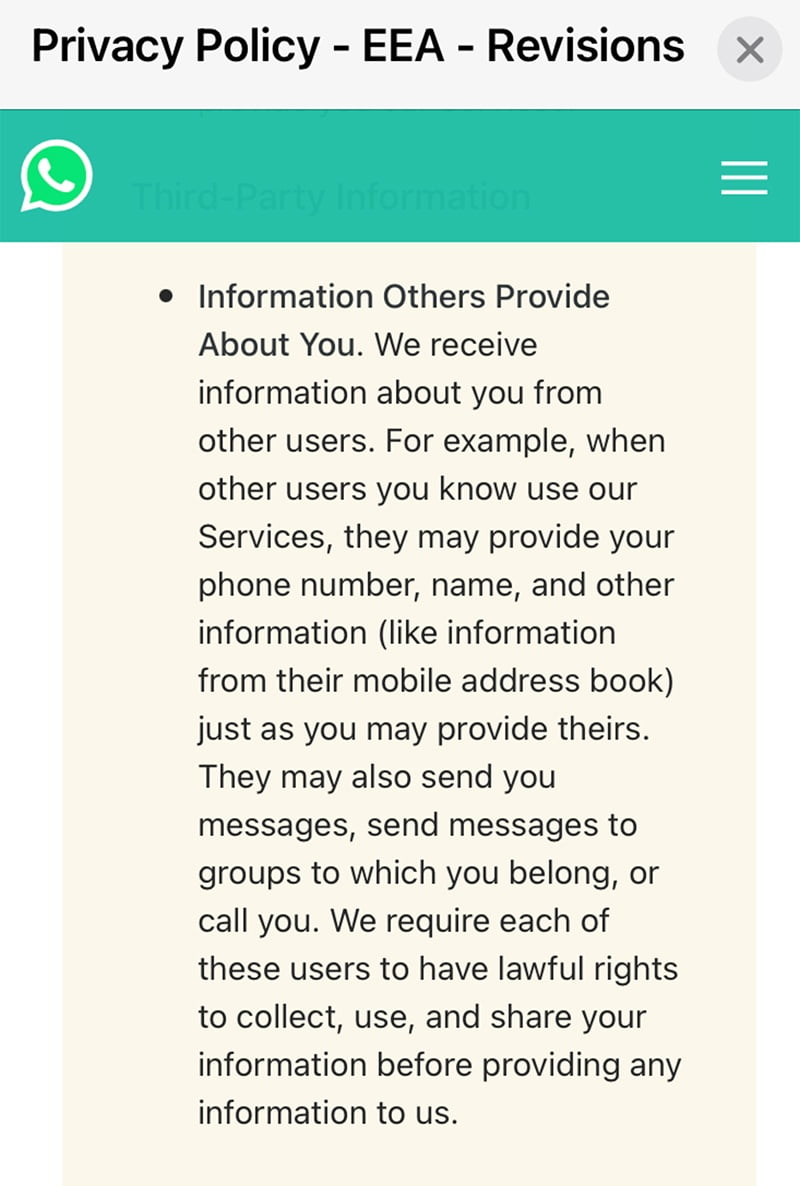
Existing but unusable account
The account will not be completely deactivated, but it will become practically unusable. Users who do not accept the new terms will no longer be able to send or receive messages, making the app functionally inaccessible. WhatsApp leaves no real alternative—either users agree to the updated policy, or they will be locked out of the service. Additionally, 15 May marks the final deadline to download chat conversations on Android or iPhone devices before restrictions take effect.
Check out how to save, export or delete your WhatsApp chat history
What will change?
The main change concerns data sharing, including phone numbers, transaction details, service-related information, and interactions with other users. The updated terms introduce a section on “Affiliates,” stating that “WhatsApp receives information from, and shares information with, Facebook Companies” to facilitate integrations with other Facebook products, enhance security, and improve advertisements and user experience across Facebook platforms.
Your perspective highlights the dominance of major tech companies and the psychological barriers that prevent users from switching to alternative platforms. The “network effect” is a powerful force—most people stick with WhatsApp because everyone they know is already there. Many users don’t question the implications of data sharing, either due to convenience, lack of awareness, or the common belief that “I have nothing to hide.”
Fear of change plays a significant role, too. The idea of losing access to contacts, groups, and familiar features discourages migration, reinforcing the belief that alternatives—especially open-source ones—are less capable or unreliable. The comparison to Google and Booking is spot on: visibility and accessibility shape our choices, and many feel trapped in ecosystems dominated by big tech.
What compromise?
WhatsApp has an obligation to comply with the GDPR which stipulates acceptance of advertising, etc. The final user can manage these option into his smartphone or desktop settings in order to deactivate tracking, etc. This is already the case of many major Apps, many connected object (IoT) like smart tv for example (allow or not Google Analytics, etc.), as well in all major websites for the cookies policy compliance. Nevertheless, not all features can be deactivated and more data will be exchanged automatically with FB. The situation remains unclear.
You may migrate little by little on others Chats by keeping your WhatsApp contacts (by saving its contents and then deleting all your chat history), solicit your friends by spreading the word of other very well conceived Apps and finally use other NSA-FB non compatible Apps for sharing you private information and use WhatsApp only for non-private and non sensitive communications (especially if you have groups). Furthermore, with people migrating from one chat to another, Telegram & Signal are constantly improving their services.
Check out how to move Chat History from Other Apps
The business of intermediary platforms is getting bigger and bigger. Therefore, it would be good to have a digital awareness to understand the Pros and Cons of each choice we make. If not, the licit monopoly in an ultra-liberal big-tech market where the sheep have no choice but to follow the “crowd” will always prevail.
Since February 18 2022, millions of European users have been receiving a communication from WhatsApp. The European Commission, included a clear warning about people’s privacy. They want FaceBook to provide more details on how they use your data. The hottest topic is precisely that of European citizens’ data, in particular how they are transmitted overseas. Among the precedents of this clash already hangs the EU’s record fine of 225 million for violating European privacy laws, precisely because of the lack of clarity in the use of data, and the threatening reaction of Meta, which had considered the possibility of withdrawing WhatsApp, Facebook and Instagram from Europe.
What happens when you delete your WhatsApp account ?
They purely “hate you”… :-(
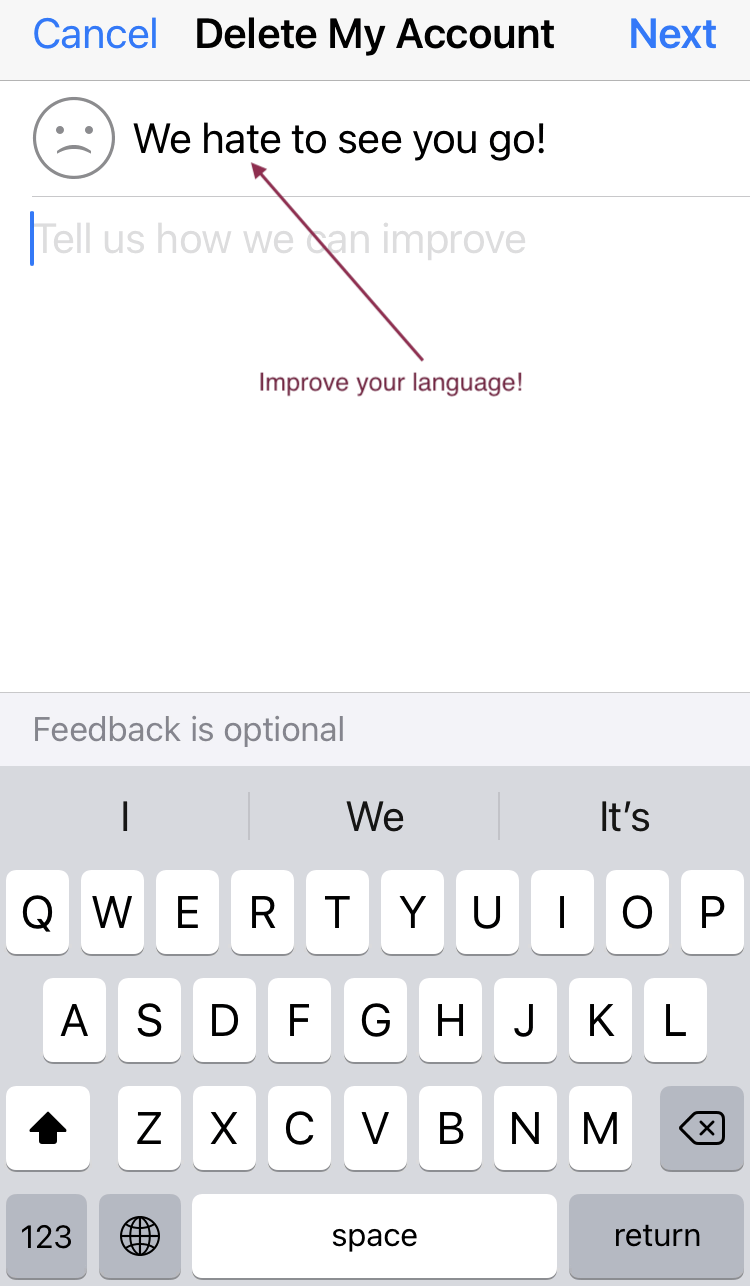
- Listen to the RTS Digital Chronicle – Privacy (in French)
- Listen to the Les utilisateurs suisses face aux nouvelles conditions de WhatsApp (in French)
- Listen to the RSI news about Threema (in Italian)
- View the WhatsApp privacy policy (behind which a much bigger political game is being played)

